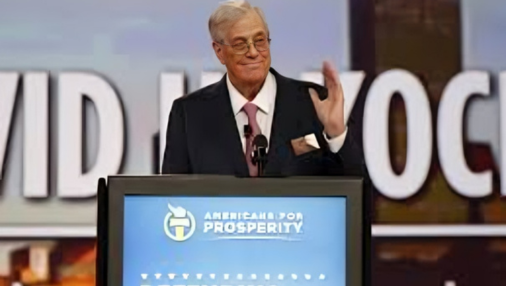David Koch: The Life, Legacy, and Impact of an American Billionaire
Introduction
David Koch (1940–2019) was a prominent American businessman, philanthropist, and political activist, best known for his role in Koch Industries, one of the largest privately held companies in the United States. Alongside his brother Charles Koch, David transformed Koch Industries into a global conglomerate spanning industries such as chemicals, refining, paper products, fertilizers, and more. Beyond business, David Koch left an indelible mark through philanthropy, politics, and cultural contributions.
Early Life and Education
David Hamilton Koch was born on May 3, 1940, in Wichita, Kansas, to Fred C. Koch and Mary Robinson Koch. His father was a successful chemical engineer who founded Koch Industries. David earned a bachelor’s degree in chemical engineering from MIT in 1962 and later a master’s degree, equipping him with the knowledge that would later drive innovations in the company.
Career at Koch Industries
- Diversification: Expanded Koch Industries beyond oil refining into fertilizers, polymers, and consumer products.
- Innovation: Invested in new technologies, making the company a leader in energy and chemical production.
- Global Expansion: Entered international markets, establishing Koch Industries as a global player.
- Wealth Accumulation: Became one of the richest Americans, with Forbes estimating his net worth at over $50 billion.
Political and Social Influence
- Libertarian Party: Ran as vice-presidential candidate in 1980 alongside Ed Clark.
- Political Funding: Supported campaigns, think tanks, and advocacy groups promoting free-market policies and limited government.
- Controversy: Political involvement made him a polarizing figure in public debates.
Philanthropy and Cultural Contributions
- Medical Research: Donated over $1 billion to cancer research and treatment centers, including Memorial Sloan Kettering Cancer Center.
- Education: Funded programs and scholarships at MIT, Harvard, and Lincoln Center.
- Arts and Culture: Supported museums, theaters, and cultural institutions such as the Metropolitan Museum of Art.
- Community Initiatives: Funded public libraries, science museums, and educational programs for underserved communities.
Personal Life
- Married Julia Flesher Koch in 1996 and shared philanthropic endeavors.
- Diagnosed with prostate cancer in 1992 but remained active in business and philanthropy.
- Passionate about aviation and collected aircraft, reflecting his interest in technology.
Legacy and Impact
- Business Legacy: Transformed Koch Industries into one of the largest private companies worldwide.
- Philanthropic Contributions: Major impact in healthcare, education, arts, and community development.
- Political Influence: Shaped American political discourse on libertarian and free-market ideals.
- Cultural Impact: Supported institutions that continue to benefit communities globally.
Conclusion
David Koch’s life was a remarkable blend of entrepreneurship, philanthropy, and political activism. As a leader of Koch Industries, he exemplified business acumen and innovation. His philanthropic contributions have left lasting benefits in healthcare, education, and the arts. While his political activities sparked debate, his legacy highlights the influence and responsibilities of wealth in shaping society. David Koch remains an inspirational yet complex figure, demonstrating the power of vision, commitment, and societal impact.

